- Home
- Sonya Hartnett
What the Birds See
What the Birds See Read online
Table of Contents
One
Two
Three
Four
Five
Six
Seven
Eight
Nine
Ten
For Evelyn McAlister,
to remember her mother, Peg
It was a warm day and they had behaved, as they had promised they could, so there must be ice-cream. Veronica took her sister’s hand. That afternoon, so near to winter, the sky was very blue; the sun felt soft as a cat. The children, on the footpath, paused to wave to their mother. For them, at their age, a trip to the milkbar could take on the dimensions of a voyage.
The mother straightened from the soil, hair falling into her eyes. Her children’s voices were thin and high, the piping of chicks in a nest. “Goodbye, my loves,” she said, the words no more than her habit. The mother would remember, later, the white glint of silver coins held tight in the palm of her son.
Christopher was five, with a child’s ponderous gait; his older sisters, leggy as fillies, must match their pace to his. Zoe’s thoughts would drift as she ambled, lingering on insects and flowers. Bending again to her garden, the mother knew without calculation that her children would be gone for half an hour: fifteen minutes to the shop, fifteen minutes home.
The route they’d take to the milkbar would bend around four corners of the suburban neighbourhood: two right turns, two left. Their neighbourhood was a modest one, and the distances between the corners were not great. The result of all the twisting was that no one who saw the Metford children walking through that clear afternoon would see them for very long.
The first witness was changing a tyre, on his knees uncomfortably on a stone driveway. He noticed the children because the little boy, passing the gate, made an infant’s noise for a car, brrm. The sound made the man smile, the only thing to have done so all day. The witness recognized the Metfords as local, although he did not know their names. He would tell the police that, when he saw them, the children were alone.
The youngsters had rounded the first corner, a right turn, when they were seen again. This witness, a woman shaking crumbs from her kitchen mat, also recognized them, having walked on countless occasions past the Metfords’ picket-fenced front yard, where the children often played. She saw that the eldest girl, ten-year-old Veronica, was holding her brother’s hand. The girl’s pale hair caught the light, a flag of sunshine down her spine; the boy’s blue shadow yearned out from his feet, lean and gangle-limbed. The middle child, Zoe, wandered behind her siblings, lashing a eucalypt switch through the air. Following her was a man, fair, quite tall, thin. He wore his lank hair fashionably long. The witness assumed that this man was with the children, for he walked just a step behind.
Two corners later, the Metfords were seen for a third time. The frenzied barking of a terrier made its owner look up from a crossword. Through a window he saw the children step uneasily onto the nature strip, putting distance between themselves and the unfenced canine. He saw the older girl say something to the small ones, stern and reassuring. The children kept to the grass, Veronica shepherding her brother protectively, until they were beyond sight of the house. The dog did not chase them, but gave a final militant bark. It trotted across the nature strip and sniffed the footprints in the weeds. There were other smells that must be investigated too. The owner watched until his pet returned satisfied to the veranda, resuming its vigil. This witness would insist that at no time while he was looking into the street did he see a man of any description trailing the three children.
Outside the milkbar, they were noticed again. This would be the last sighting. A woman, checking her change in the shade of the store, saw from the corner of an eye a little girl waving. The woman was a schoolteacher and her first instinct was to assume the child was one of her pupils – Zoe Metford, blue-eyed with mousy bobbed hair and a round, elfin chin, looked, at a glance, like any other seven-year-old. Not recognizing her, however, the teacher turned to discover the recipient of the child’s friendliness. On the far side of the road a young man was standing beside a street sign. The witness would describe this man as thin, tall, unhealthy. His brown hair was windswept and clung about his shoulders. He wore blue jeans and a T-shirt, ruby red against his skin. Over a wrist was hanging a colourless cloth of some kind. He did not return the little girl’s greeting and the teacher guessed she had made a mistake. The children and the youth had nothing in common, and perhaps the child was waving at a bird. As she walked away the teacher smiled to see the difficulty the older girl was having, prising coins from her brother’s clenched hand.
In 1977, a Year of the Snake, the purged Chinese leader Deng Xiaoping was returned to power. The audacious angles of Concorde took to the air, linking Paris to New York. Queen Elizabeth celebrated her Silver Jubilee, Time magazine named Anwar Sadat its Man of the Year. Disco ruled the dancefloor, jiving to “Saturday Night Fever”. The space shuttle Enterprise successfully completed its first manned flight, and Star Wars was seen by millions. A fishing boat dredged from the Pacific’s depths a carcass initially touted as being that of a dinosaur. The United Nations banned the sale of arms to South Africa, US President Carter officially pardoned those who’d draft-dodged the Vietnam War. The Altair 8800, the first true personal computer, was released for sale in kit form. Soccer star Pelé retired from the game, comedian Groucho Marx took his final curtain call. The credits rolled over actors Joan Crawford and Charlie Chaplin. Elvis left the building, beached ignominiously on his bathroom floor. In the Canary Islands, two 747s collided on a runway: more than 570 people were killed, making this the greatest aircraft disaster in history.
Three children bought no ice-cream, did not return home.
ONE
They have found a sea-monster. A Japanese fishing boat, trawling for mackerel in the deep black seas off New Zealand, has caught in its nets the shabby stinking remains of a colossal beast. The crew had hoisted the rotting thing over the boat to get a better view. At first they’d thought it was a whale – then they wondered if it wasn’t something more. As if obliging the curious men, the dead thing had slithered through the ropes and slumped heavily onto the deck. Pinching their noses, gagging, the fishermen reeled away. One held his breath to creep gamely forward, camera in hand to record the astonishing wreckage they saw.
Adrian stares at the photographs, reproduced imperfectly in the morning’s newspaper. In the background of each picture are the beams and steel cables of a working trawler; in one there is a chequered buoyancy-ring. Massed in the foreground of the photos sprawls the monster. Its blockish head weighs down a long and narrow neck. Winglike flippers fold back from its cresting, cavernous body. It seems to possess a tattered rope of tail. The bones show through – sometimes break through – the white and waxy skin. The flesh looks melted, it is a thing in ruins. Seaweed hangs from it in hanks. Knuckles on its back-bone are as straight as a set of stairs.
There’s speculation that this creature could be a giant turtle, slipped loose from a massive shell. There is even talk that it might be a plesiosaur, which is a seafaring dinosaur believed extinct for millions of years. A spokesman calls it a precious and important discovery; a toy company announces it will sell wind-up models of the thing.
They hadn’t kept it on the boat for long. It had stunk unbearably. After the photos were taken they’d jimmied it off the deck, once more into the sea.
A monster. Adrian scoops his spoon through the limp flakes and warm milk of his breakfast, studying the photographs. There’s something sad in the way the animal hangs its head, its attitude of defeat and shame. It is sad that it’s been dredged from its cold water grave and hung up for everyone to see.
Still, a sea-monster. I
n the pictures, the men who stand beside the beast look like children, even smaller. Though this one is dead, there might be others alive, winging the scaly waves into shore. It is not going to be the same now, swimming in the sea.
Adrian adds sea-monster to the list of things he finds disquieting.
Grandmother (Grandmonster?) is another. After breakfast she makes him stand in front of her dressing-table mirror while she combs his hair. She makes no attempt to be gentle. Adrian, looking in the mirror, winces occasionally. His hands hover just above the surface of the dressing table.
“Don’t fidget, Adrian.”
“I’m not.”
But his fingers are drawn like thieves to the glittering dresser set which holds pride of place on the tabletop, a hand mirror and hairbrush rested on a matching, sparkling tray. Apart from the squat mirror face and the prickly bristles of the brush, the entire set is made of crystal. The crystal is carved into a pattern of neat rowed pyramids. Running a finger over the pyramids feels like petting a crocodile. Adrian lifts the hairbrush by the handle and the weight of it makes the points of the pyramids bite into his palm.
“Put it back now.”
He returns the brush carefully to the tray, bristles down, beside the mirror, but his fingers linger, balancing on the pyramid tips. “You never use this brush and mirror, do you, Gran?”
She doesn’t look up from the knot she’s discovered. “It’s too good to use.”
“Then why do you have it? Why do you keep it on the table?”
His chin is jerked up as she wrenches the knot, and he hears his hair tearing. “If we only kept what had a use,” she says, “there’d be a lot less junk lying round.”
He contemplates her image in the dresser mirror, wondering what she means. He’s never seen much junk lying anywhere around the stolid urban neighbourhood, but he imagines tottering tangles of doll heads, bike tyres and foil milkbottle caps rising as creaky mountains from the middle of footpaths. He scrambles like a mouse to the peak of a rubbish hill and as far as he can see is inviting flotsam and curious dregs, a child’s utopia. He returns his gaze to the silvery mirror: his gran is wearing a cream dress splashed with flowers so red they might be bleeding. “Crystal looks the same as glass,” he muses. “What’s the difference?”
His grandmother doesn’t answer. He shifts his balance to the other foot. “I don’t know why there’s two things that look the same but get called different names.”
“Adrian, stand still!” She cuffs the side of his head and he straightens obediently, dropping his hands to his sides. In the mirror she’s frowning furiously at his hair. His hair is dense and yellow and strangely, stiffly wild, an armload of hay dumped helter-skelter on his head. It tangles like it has a lunatic mind of its own. “Where on Earth did he get this hair?” his gran asks no one, and strand after strand of it breaks beneath her ploughing comb. “It didn’t come from our side of the family. The McPhees haven’t got this impossible straw. It’s come from the father’s side.”
Adrian steals a cowed glance to the mirror. His grandma’s hair sits in downy cylinders – if he opens the top drawer of the dresser he’ll find the pink and blue plastic rollers responsible for curving it that way. Her hair looks white as chalk today; it is thin, and getting thinner. He seems to remember it once being mauve. He dreads the thought of sprouting purple hair himself, but he worries that he’ll never be a normal person, that his impossible hair is a symptom of some inescapable failing. Even when his grandmother has finished with it, the hanks still seem defiantly snarled. “There,” she says. “You’re ready.”
Adrian’s gaze flits to his reflection, his clean face, his trim school uniform, the sky-blue skivvy at his throat. The v-neck jumper sports cuffs of navy blue, the grey corduroy trousers are ironed. This is ready. Though it is the brink of winter the past few days have been warm, and the corduroy will be heavy to wear. In summer the boys wear shorts and long socks and their kneecaps look bruised, knobbled, too big for their legs. His gran says, “Get your things and I’ll meet you in the car.”
He hurries down the hall to retrieve his satchel from his room, a hand on his forehead to soothe the smarting of his scalp. He double-checks the bag’s depths for his homework and lunchbox. As he trots back through the hall, the strap of the satchel like a swinging snake on his arm, he hears his uncle calling him and slides to a halt on the parquetry, teeth sinking into his lip.
The door is slightly ajar. Adrian runs a hand down it lightly, so it glides away on its hinges. He slips partway through the gap, an arm and foot and the schoolbag staying in the hall. The room is dark, the curtains closely drawn. On the cold air is the ruddy mean scent of oil paint and, beyond it, another, insistent and grimly stale: this is only the smell of young man, but Adrian sniffs in it the odour of the bad things that can befall anyone. “Yes, Uncle?”
The dark and silence has made him whisper. A scrap of brightness noses in from the hall but is parched before it reaches the end of the bed. Adrian knows his uncle is lying there, curled like a mole under his earthy heap of blankets. His pillow, Adrian knows, is limp and dented as a fallen leaf. Again he breathes, “Yes, Uncle?”
Uncle Rory speaks into the black; his voice is like the snow. He says, “You tell me something and I’ll tell you something.”
A fish-hook of dread grabs at Adrian’s maw. He hears, outside, the engine of the car. His grandmother is reversing the vehicle out of the garage. The car is as big as a tank, as an ocean liner, and it takes all his grandma’s patience to get it safely down the drive. If he is not there to meet it when the wheels heave onto the footpath, then – strife, grandmonster. The inspiration comes with giddying relief. “They’ve found a monster in the sea.”
“Have they?”
“Yes – in the newspaper. It might be a dinosaur.”
“Really.” He hears the air jet from Uncle’s nose. “We’ll see.”
Adrian can’t think what to answer; his ears are pinned back with the sound of the car. The bag dances on the end of its strap. “I’ve got to go.”
“Don’t you want to hear what I’ll tell you?”
He nods quickly, and swallows. His uncle shifts, the blankets distend, and the bed creaks tiredly. “I’ll tell you the difference between glass and crystal, Adrian. The difference is that crystal sings.”
Adrian blinks. Uncle Rory hears everything – Adrian often forgets. Uncle is a man who hears and sees all: Gran says it’s because he won’t stir himself to do anything a bit more useful. Rory would have heard Gran disown Adrian’s unwieldy hair; Uncle himself has the McPhees’ puckish but biddable curls. “Oh,” says the boy.
“Do you know what I’m talking about? How crystal sings?”
“…No. I’ve got to go.”
“Trust me,” says Rory. “It sings. One day I’ll show you.”
Adrian looks blindly into the room, the air chill on his lips. The smell is almost solid; the scrap of light from the hallway lies in a faint across his shoes. “I’ve got to go,” he repeats.
“Go on, then,” sighs his uncle. “Pay attention to your teacher.”
“I will,” says Adrian; he ducks away and runs down the hall, flying like a bird, through the kitchen, out the door and into the morning air.
He doesn’t like or hate school: his nine years have been lived doing what older people have told him to do, and going to school is one of those things, unavoidable, not worth resenting. This isn’t his first school – he’s been coming here only as long as he’s been living with his grandma and uncle, which is almost a year. Before then, while he’d lived with his mother, he had gone to a school so close to home that he’d walked there and back alone every day; living with his father, he’d caught the school’s trundly bus. Now, at this different school, his gran drives him to the gate each morning and meets him in the same spot every afternoon. She often tells him he’s a tie-down, and Adrian has no clear idea what she means. He doesn’t have anything to do with ties.
He isn’t parti
cularly gifted at anything except art: the other kids gather admiringly round his desk during the once-weekly afternoon sessions when they’re allowed to paint and draw. Aside from this, he goes more or less ignored. He doesn’t mind that – he prefers to be overlooked. He is bashful, and rarely puts up his hand: if he knows an answer, he generally keeps it to himself. He isn’t boisterous, he can’t run fast, he is hopelessly uncoordinated. He sometimes joins the boys playing football at lunchtime on the broken asphalt, but he isn’t a skilful player. When the captains pick their teams from the mob, first one boy choosing and then the other, Adrian is unfailingly one of the last to be selected, left waiting with the fat boy and the immigrant. Adrian is the runt. But he takes the humiliation in good stead, and always feels a squeeze of pleasure when his name is finally called.
He has a best friend, another unathletic specimen: Clinton Tull, whose glasses are thick enough to hold back the tide, never sees a football coming before it booms off his brow. Clinton is known to be scrupulous, and his glasses naturally make him wise. He is regularly called upon to settle disputes which fisticuffs have failed to solve. He isn’t spoilt, but his mother delights in buying him things. The two boys had become friends over a top-of-the-range tin of Derwent pencils: Clinton owned them, but Adrian could harness their brilliance.
Most lunchtimes Adrian doesn’t play football; instead, he and Clinton sit in their favourite place on the sidelines, watching and conferring quietly, sombre as a pair of old gents. They sit side by side with their spines against the red bricks of the disused toilet block, their wrists propped on their knees. The bricks are warm in winter and the eaves shade off the summer sun. Attached to the wall, at ear-height to the sitting boys, is a steel trough with six drinking taps, and occasionally they exchange a few words with a bloodied or thirsty football player. From their territory against the toilet block, the boys overlook most of the schoolyard – the basketball court where the bigger girls play rounders, the undercroft where the smaller girls skip, the asphalt yard that’s a black, gnarled and grassless playground, the jungle-gym and monkey bars over which the little kids swarm. They see the studious girls ranged in twos and threes along a distant fence, driving unsentimental bargains over swapcards. They see the excluded boys and girls, most of them sitting in shadows by themselves. Adrian feels sorry for these misfits, but not so sorry that he will risk his meagre reputation by befriending any of them. He knows how close he himself teeters to the abyss of exclusion. Only Clinton stands between him and the searing loneliness Adrian recognizes in the outcasts. He has felt, before, their aching forlornness for himself.

 Butterfly
Butterfly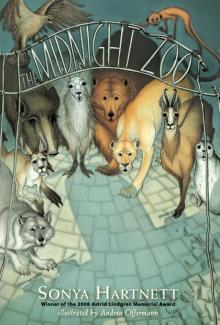 The Midnight Zoo
The Midnight Zoo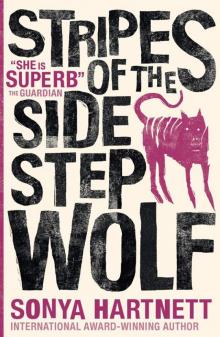 Stripes of the Sidestep Wolf
Stripes of the Sidestep Wolf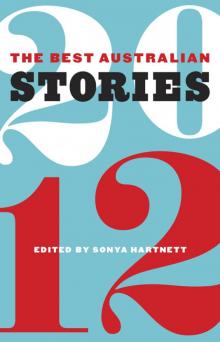 The Best Australian Stories 2012
The Best Australian Stories 2012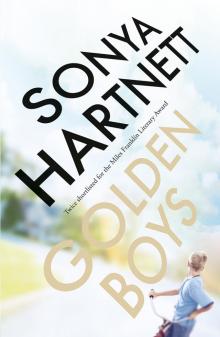 Golden Boys
Golden Boys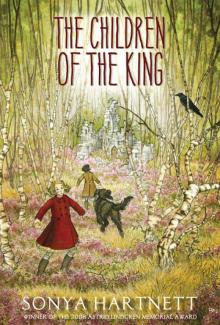 The Children of the King
The Children of the King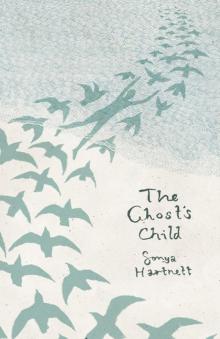 The Ghost's Child
The Ghost's Child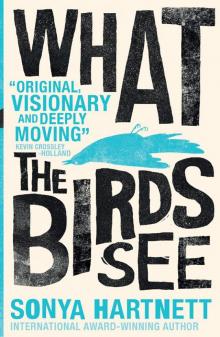 What the Birds See
What the Birds See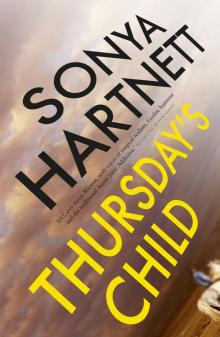 Thursday's Child
Thursday's Child